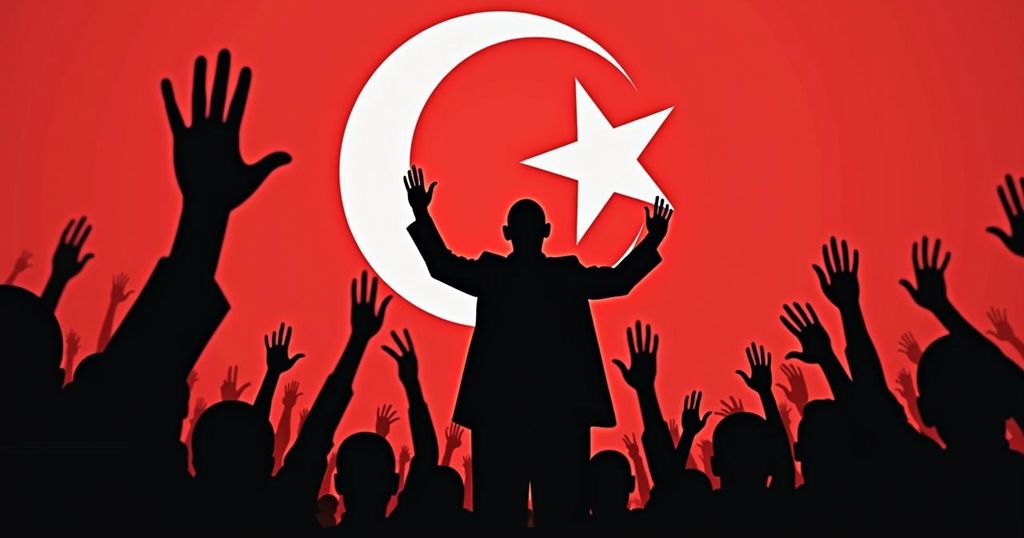Kais Saied Secures Second Presidential Term Amidst Low Turnout and Political Repression
Kais Saied has won a second presidential term in Tunisia with 90.7 percent of the vote amid a notably low turnout of 28.8 percent. With a backdrop of political repression and the imprisonment of opposition leaders, Saied’s administration faces criticism for eroding democratic gains made since the 2011 revolution. His victory speech emphasized a continued effort against corruption and dissent.
Tunisian President Kais Saied has achieved a decisive victory in the recent presidential election, securing 90.7 percent of the votes as announced by the Independent High Authority for Elections of Tunisia (ISIE). However, this election witnessed a dismal voter turnout of only 28.8 percent, the lowest since the nation’s revolution in 2011. Saied faced two competitors in this electoral contest: Zouhair Maghzaoui, the leader of the Chaab Party, who had shifted from an ally to a critic of Saied, and Ayachi Zammel, a businessman whose candidacy was hampered by his recent imprisonment. In office since 2019, Saied’s presidency has been marked by a significant crackdown on political opposition and dissent. Rights organizations assert that his government has stymied the democratic advancements made since the Arab Spring. Several prominent opposition leaders have been jailed following a wave of arrests targeting political adversaries and critics, leading to an atmosphere of fear and repression. Notably, figures such as Abir Moussi, head of the Free Constitutional Party, have faced imprisonment. Furthermore, many existing political factions did not endorse any of the candidates in the recent election, reflecting a broader climate of oppression against dissenting voices. In a controversial maneuver in 2021, Saied dissolved the parliament and undertook substantial amendments to the constitution, an act the opposition denounced as a coup attempt. Despite international scrutiny and domestic criticism, he has maintained that his actions are necessary to combat corruption and treachery within the political elite. Following the elections, Saied expressed his determination to continue his agenda, stating the results signify, “This is a continuation of the revolution. We will build and will cleanse the country of the corrupt, traitors and conspirators.” The outcome of this election raises concerns regarding the future of democratic processes in Tunisia, as the ruling establishment continues to consolidate power amidst ongoing human rights violations.
Tunisia, which was considered the sole democratic success story of the Arab Spring, has experienced significant political turmoil since 2011. The political landscape has shifted dramatically under President Kais Saied, who has faced increasing accusations of authoritarianism. Following his rise to power, Tunisia’s political environment has transitioned from a fledgling democracy to one characterized by pervasive repression of dissent and the diminishing of institutional safeguards against executive overreach. This backdrop is crucial to understanding the current electoral dynamics and the implications of Saied’s recent victory.
The re-election of Kais Saied amidst low voter turnout and increased political repression sheds light on the precarious state of democracy in Tunisia. Saied’s administration has faced extensive criticism for its authoritarian tendencies, which have undermined the political freedoms that emerged following the 2011 revolution. His remarks following the election indicate a continuation of his policies aimed at consolidating power, raising concerns over the future of democratic governance in the country.
Original Source: www.aljazeera.com




Post Comment